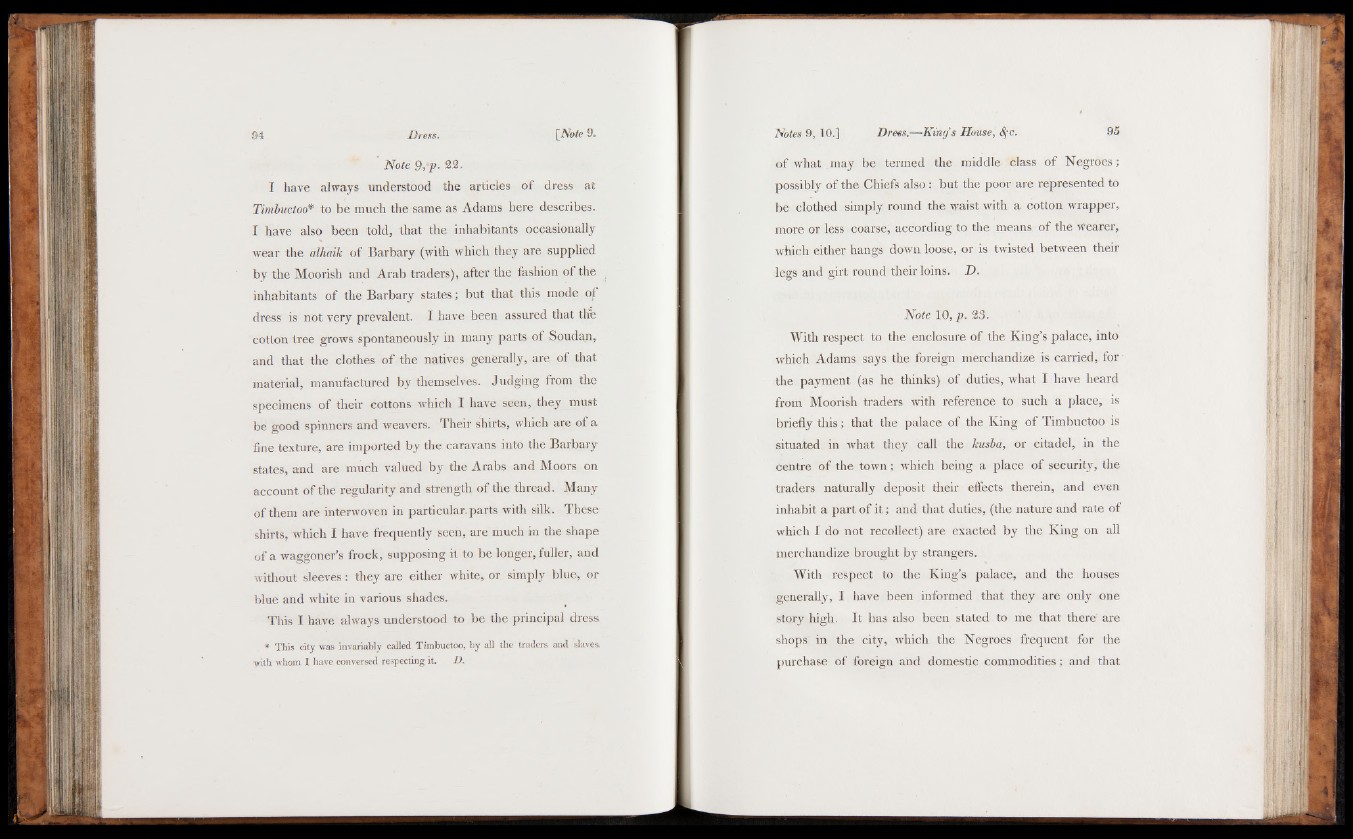
Note 9,'P- 22.
I have always understood the articles of dress at
Timbuctoo* to be much the same as Adams here describes.
I have also been told, that the inhabitants occasionally
wear the alhaik of Barbary (with which they are supplied
by the Moorish and Arab traders), after the fashion of the
inhabitants of the Barbary states; but that this mode of
dress is not very prevalent. I have been assured that the
cotton tree grows spontaneously in many parts of Soudan,
and that the clothes of the natives generally, are of that
material, manufactured by themselves. Judging from the
specimens of their cottons which I have seen, they must
be good spinners and weavers. Their shirts, which are of a
fine texture, are imported by the caravans into the Barbary
states, and are much valued by the Arabs and Moors on
account of the regularity and strength of the thread. Many
of them are interwoven in particular, parts with silk. These
shirts, which I have frequently seen, are much in the shape
of a waggoner's frock, supposing it to be longer, fuller, and
without sleeves: they are either white, or simply blue, or
blue and white in various shades.
This I have always understood to be the principal dress.
* T h is city was invariably called Timbuctoo, b y all th e traders and slaves;
with whom I have conversed respecting it. D.
of what may be termed the middle class of Negroes;
possibly of the Chiefs also: but the poor are represented to
be clothed simply round the waist with a cotton wrapper,
more or less coarse, according to the means of the Wearer,
which either hangs down loose, or is twisted between their
legs and girt round their loins. D.
Note 10, p. 23.
With respect to the enclosure of the King’s palace, into
which Adams says the foreign merchandize is carried, for •
the payment (as he thinks) of duties, what I have heard
from Moorish traders with reference to such a place, is
briefly this; that the palace of the King of Timbuctoo is
situated in what they call the kusba, or citadel, in the
centre of the town; which being a place of security, the
traders naturally deposit their effects therein, and even
inhabit a part of i t ; and that duties, (the nature and rate of
which I do not recollect) are exacted by the King on all
merchandize brought by strangers.
With respect to the King’s palace, and the houses
generally, I have been informed that they are only one
story high. It has also been stated to me that there' are
shops in the city, which the Negroes frequent for the
purchase of foreign and domestic commodities; and that